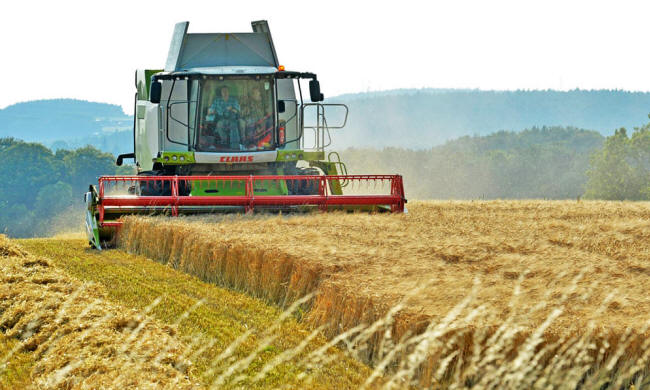|
The UK says farm practices must radically change to be sustainable and friendly to the environment, claiming that the true cost of cheap food is health and climate crisis.
True cost of cheap
food is health and climate crises, says commission The true cost of cheap, unhealthy food is a spiraling public health crisis and environmental destruction, according to a high-level commission.
It said the UK's food and farming system must be radically transformed and become sustainable within 10 years.
The commission's report, which was welcomed by the environment secretary, Michael Gove, concluded that farmers must be enabled to shift from intensive farming to more organic and wildlife friendly production, raising livestock on grass and growing more nuts and pulses.
It also said a National Nature Service should be created to give opportunities for young people to work in the countryside and, for example, tackle the climate crisis by planting trees or restoring peatlands.
...which was produced by leaders from farming, supermarket and food supply businesses, as well as health and environment groups, and involved conversations with thousands of rural inhabitants.
The commission said most farmers thought they could make big changes in five to 10 years if they got the right backing.
The commission criticized decades of government policy aimed at making food cheaper, fuelling rising obesity and other health problems.
Sue Pritchard said the UK had the third cheapest basket of food in the developed world, but also had the highest food poverty in Europe in terms of people being able to afford a healthy diet.
Type 2 diabetes, a diet-related illness, costs the UK £27bn a year, she said.
The commission also said,
To solve these crises, the commission said "agro-ecology" practices must be supported, such as organic farming and agro-forestry, where trees are combined with crops and livestock such as pigs or egg-laying hens.
The commission has also adapted for the UK a recently published scientific diet that is both nutritious and environmentally sustainable.
While it and other studies recommend large reductions in meat-eating, Pritchard said:
The so-called planetary health diet calls for more nuts and pulses in diets and Pritchard said these and more vegetables could be grown in the UK.
Hazelnuts and walnuts are native to the UK, she pointed out, and some farmers are now starting to grow crops like lentils and quinoa, as well as beans and peas.
The commission said the government must develop a plan to put the countryside and the communities living there at the centre of the green economy.
Gove said:
He added that the government's agriculture bill would reward farmers with public money for public goods and a new "farm to fork" food review would look to ensure everyone had access to healthy British food.
The report was backed by Labour and the Liberal Democrats.
The Green MP Caroline Lucas said:
The commission said a new non-profit bank should be set up to provide finance to farmers investing in new practices.
With Brexit uncertainty worrying farmers, the commission urged minister to stop delays on policy and trade decisions and commit to a future-proof ambition by January 2020.
It also said schools, hospitals and prisons should buy more sustainably produced British food.
Prof Joanna Price, the vice-chancellor of the Royal Agricultural University, said:
|


